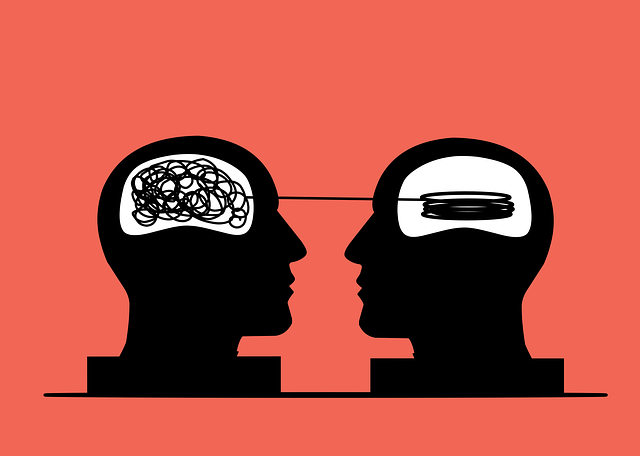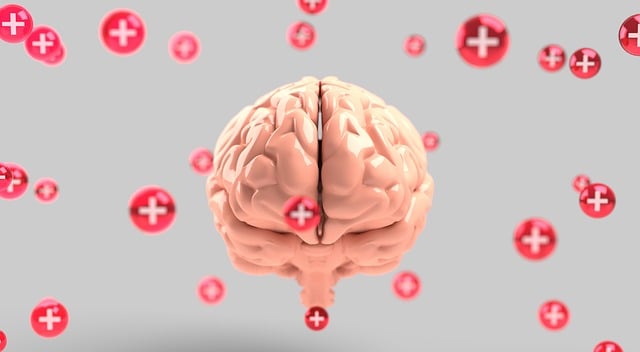Emotion regulation during major life transitions like career shifts or health crises is vital. Therapy for Major Life Transitions incorporates mindfulness, compassion cultivation, and conflict resolution techniques. Identifying triggers through detailed records helps tailor coping strategies. Healthcare Provider Cultural Competency Training recognizes unique identity-related triggers. Cognitive techniques challenge negative thought cycles, and integrated risk management planning provides adaptive coping strategies. Mindfulness practices observe emotions without judgment, preventing burnout and supporting trauma recovery. Behavioral approaches focus on healthy habits like exercise, sleep, nutrition, and mindfulness to enhance emotional well-being and prevent mental health challenges.
Emotion regulation techniques are vital tools during major life transitions, helping individuals navigate challenging periods with resilience. This comprehensive guide explores effective strategies to manage and understand emotions, offering a roadmap to emotional well-being. We delve into the significance of emotion regulation during life’s twists and turns, providing insights on identifying triggers and implementing coping mechanisms. From cognitive techniques to mindfulness practices and behavioral approaches, discover proven methods for fostering emotional agility and enhancing therapy for major life transitions.
- Understanding Emotion Regulation and Its Significance During Major Life Transitions
- Identifying Triggers: Recognizing Patterns for Effective Coping Strategies
- Cognitive Techniques: Challenging Negative Thought Cycles
- Mindfulness Practices: Cultivating Present-Moment Awareness
- Behavioral Approaches: Building Healthy Habits for Emotional Resilience
Understanding Emotion Regulation and Its Significance During Major Life Transitions

Emotion regulation is a vital skill to cultivate, especially during major life transitions. These periods, such as career shifts, relationships ending or beginning, or significant health changes, can bring about intense and unpredictable emotional landscapes. Without effective emotion regulation techniques, individuals may struggle to navigate these transitions healthily.
Therapy for Major Life Transitions often emphasizes the role of mindfulness meditation, compassion cultivation practices, and conflict resolution techniques in managing emotions. Mindfulness helps individuals become aware of their feelings without judgment, allowing them to observe rather than react impulsively. Compassion cultivation practices encourage self-compassion and empathy, fostering a supportive inner environment during challenging times. Conflict resolution techniques teach effective communication strategies, enabling people to manage interpersonal tensions that can arise during life transitions.
Identifying Triggers: Recognizing Patterns for Effective Coping Strategies

Identifying triggers is a crucial step in emotion regulation techniques teaching, especially when navigating major life transitions. By recognizing patterns and recurring situations that evoke strong emotional responses, individuals can develop effective coping strategies. Therapy for Major Life Transitions often focuses on this aspect, helping clients understand their unique triggers and the underlying emotional responses they elicit.
This process involves keeping a journal to track emotions, behaviors, and environmental cues, allowing people to identify specific patterns. For instance, recognizing that certain stressors at work consistently lead to feelings of anxiety or anger can prompt the adoption of self-care practices like mindfulness exercises or seeking support from colleagues during busy periods. Similarly, understanding cultural nuances through Healthcare Provider Cultural Competency Training can help individuals recognize and address unique triggers related to identity and background.
Cognitive Techniques: Challenging Negative Thought Cycles

Cognitive techniques play a pivotal role in emotion regulation, especially during major life transitions. By challenging negative thought cycles, individuals can gain a fresh perspective on their emotions and experiences. This process involves identifying distorted or unhelpful thoughts and replacing them with more realistic and positive ones. For instance, during a significant change like losing a job, one might have recurring thoughts like “I’m worthless” or “I’ll never find another job.” A cognitive technique would encourage the individual to question these thoughts, examining the evidence that supports or refutes them. This mindful approach helps break free from negative thought patterns associated with anxiety relief and promotes a more balanced emotional state.
In therapy for major life transitions, risk management planning is integrated into cognitive techniques to enhance mental health professionals’ support. By teaching clients to anticipate challenges and develop adaptive coping strategies, these techniques contribute to robust mental health policy analysis and advocacy. This proactive approach not only aids individuals in managing their emotions during transitional periods but also empowers them with valuable tools for lifelong emotional well-being, ensuring they can navigate life’s twists and turns with greater resilience.
Mindfulness Practices: Cultivating Present-Moment Awareness

Mindfulness practices play a pivotal role in emotion regulation techniques, especially when navigating major life transitions. By cultivating present-moment awareness, individuals can learn to observe their emotions and thoughts without judgment. This simple yet powerful skill helps to break the cycle of reactive responses to stressful situations, allowing for better management of overwhelming feelings. Through mindfulness meditation and other focused practices, one can enhance their ability to stay grounded in the here and now, thus fostering mental wellness.
In today’s fast-paced world, where burnout prevention strategies for healthcare providers are increasingly vital, mindfulness has emerged as a game-changer. It offers a natural way to support trauma recovery and reduce the impact of adverse events. The Mental Wellness Podcast Series Production often highlights the benefits of these practices in promoting resilience and overall mental health. By integrating mindfulness into daily routines, people can better cope with life’s challenges and create a more balanced and fulfilling existence.
Behavioral Approaches: Building Healthy Habits for Emotional Resilience

Behavioral approaches play a pivotal role in teaching emotion regulation techniques, especially during major life transitions. One effective strategy involves cultivating healthy habits that foster emotional resilience. This includes regular physical exercise, which has been proven to reduce symptoms of anxiety and depression, thereby enhancing one’s ability to manage emotions effectively. Establishing structured routines for sleep and nutrition also contributes significantly to emotional well-being. A consistent sleep schedule regulates hormones related to stress and mood, while a balanced diet provides the necessary nutrients for brain health, enabling better emotional regulation.
Additionally, mindfulness practices, such as meditation and deep breathing exercises, are valuable tools in this context. These techniques help individuals become more aware of their emotions and learn to observe them without judgment, leading to improved emotional control. Incorporating these habits into daily life not only aids in depression prevention but also serves as a robust risk management planning strategy for mental health professionals. By promoting emotional well-being through behavior modification, individuals gain valuable coping skills to navigate life’s challenges more effectively.
Emotion regulation techniques offer a powerful tool for navigating major life transitions. By understanding and managing our emotional responses, we can enhance our resilience and overall well-being. This article has explored various strategies, from identifying triggers and challenging negative thoughts to adopting mindfulness practices and building healthy habits. Integrating these techniques into our lives can equip us with the skills needed to confront life’s challenges head-on, fostering a sense of control and emotional balance during turbulent times. For those seeking comprehensive support, therapy for major life transitions provides an individualized framework to master these strategies and thrive in the face of change.











